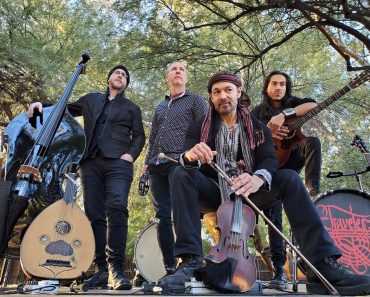How many times is music specifically mentioned in the Bible?
While it is challenging to provide an exact count, biblical scholars and researchers have estimated that music, in its various forms and contexts, is mentioned over 500 times in the Holy Scriptures. This frequency underscores the significance of music in the spiritual and cultural life of God’s people throughout biblical history.
In the Old Testament, we find numerous references to music, particularly in the Psalms, which are essentially a collection of sacred songs. The word “psalm” itself, derived from the Greek “psalmos,” refers to a song sung to the accompaniment of a plucked instrument. The Book of Psalms alone contains over 50 direct references to music and musical instruments.
Moving beyond the Psalms, we encounter music in various narratives and prophetic writings. From the triumphant song of Moses and Miriam after the crossing of the Red Sea (Exodus 15) to the therapeutic music David played for King Saul (1 Samuel 16:23), music is interwoven with the story of God’s people.
In the New Testament, Although the references are fewer, they are no less major. We find music in the nativity story with the angels’ song to the shepherds (Luke 2:13-14), in Paul’s exhortations to the early church (Ephesians 5:19, Colossians 3:16), and in the apocalyptic visions of John in Revelation, where heavenly worship is depicted with songs and instruments.
I invite us to consider how this prevalence of musical references reflects the deep human need for expression, both in joy and sorrow. Music serves as a powerful medium for emotional and spiritual communication, bridging the gap between the human and the divine.
Historically, we must understand that in ancient Near Eastern cultures, music was not a separate art form as we often consider it today, but an integral part of daily life and worship. This cultural context helps explain the frequent, almost casual, mentions of music throughout the biblical text.
Although the exact number may vary depending on translation and interpretation, the abundance of musical references in the Bible clearly demonstrates its importance in the life of faith. As we reflect on this, let us remember that our own musical expressions of faith are part of a long and rich tradition, echoing through the ages from the pages of scripture to our present-day worship.
What are some of the most important Bible verses about music?
One of the most major verses comes from the Psalms, the songbook of the Bible. Psalm 150:6 exhorts, “Let everything that has breath praise the Lord.” This verse encapsulates the essence of music in worship – it is a universal language through which all creation can glorify its Creator. I see in this verse a recognition of music’s power to unite diverse individuals in a common purpose, transcending barriers of language and culture.
In the New Testament, we find Paul’s instruction to the Ephesians (5:19): “Speak to one another with psalms, hymns, and spiritual songs. Sing and make music in your heart to the Lord.” Here, we see music not just as a form of worship, but as a means of mutual edification and internal spiritual cultivation. This verse highlights the communal and personal aspects of music in the life of faith.
The Old Testament provides us with a powerful example of music’s therapeutic potential in 1 Samuel 16:23: “Whenever the spirit from God came on Saul, David would take up his lyre and play. Then relief would come to Saul; he would feel better, and the evil spirit would leave him.” I find this verse particularly fascinating, as it speaks to music’s ability to soothe troubled minds and lift depressed spirits – a phenomenon well-documented in modern psychological research.
Another crucial verse is Colossians 3:16: “Let the message of Christ dwell among you richly as you teach and admonish one another with all wisdom through psalms, hymns, and songs from the Spirit, singing to God with gratitude in your hearts.” This verse emphasizes the didactic role of music in the showing how songs can be vehicles for theological teaching and spiritual formation.
In the Old Testament, we find a beautiful expression of joy through music in Psalm 33:3: “Sing to him a new song; play skillfully, and shout for joy.” This verse not only encourages musical worship but also promotes excellence and creativity in our musical offerings to God.
The prophetic books also provide insight into music’s role in worship. Isaiah 51:3 promises, “Joy and gladness will be found in her, thanksgiving and the sound of singing.” This verse connects music with the restoration and redemption of God’s people, showing how song is intertwined with our hope and joy in the Lord.
In our modern context, these verses challenge us to consider how we use music in our personal devotions and corporate worship. Do our songs echo the breadth and depth of biblical expression? Do they teach, admonish, and express gratitude? Do they unite us in praise and lift our hearts to God? May these scriptural insights guide us as we seek to honor God through the gift of music.
What instruments are mentioned in the Bible?
In the Old Testament, we encounter a variety of stringed instruments. The kinnor, often translated as “harp” or “lyre,” is mentioned numerous times, most famously in connection with King David. In 1 Samuel 16:23, we read of David playing the kinnor to soothe King Saul’s troubled spirit. The nevel, another stringed instrument often translated as “harp” or “lute,” is also frequently mentioned, particularly in the Psalms (Harrán, 2015, pp. 1–26).
Wind instruments play a major role in biblical narratives. The shofar, a ram’s horn trumpet, is perhaps one of the most iconic. It was used not only in worship but also as a call to battle or to announce important events. In Exodus 19:16, the sound of the shofar heralds God’s descent upon Mount Sinai. The chalil, often translated as “pipe” or “flute,” is another wind instrument mentioned in both celebratory and mournful contexts (Harrán, 2015, pp. 1–26).
Percussion instruments are also well-represented in the Bible. The toph, typically translated as “tambourine” or “timbrel,” is often associated with joyful praise and dancing. In Exodus 15:20, we see Miriam leading the women in dance with timbrels after the crossing of the Red Sea. The tziltzelim, or cymbals, are mentioned in Psalm 150 as part of a grand orchestration of praise (Harrán, 2015, pp. 1–26).
I find it fascinating to consider how these diverse instruments might have served different emotional and spiritual needs. The soothing strings of the kinnor could calm troubled minds, Although the bold blast of the shofar might stir the soul to action or repentance.
Historically, we must understand that many of these instruments had counterparts in surrounding cultures. The ancient Israelites, while maintaining their unique worship of Yahweh, were not isolated from the musical developments of their neighbors. This cultural exchange likely influenced the development and use of instruments in Israelite worship.
In the New Testament, we find fewer specific mentions of instruments. But in the book of Revelation, we encounter heavenly scenes of worship that include harps (Revelation 5:8, 14:2). This continuity between earthly and heavenly worship reminds us of the eternal significance of our musical offerings to God.
Our understanding of these biblical instruments is sometimes limited by translation challenges and the passage of time. Many of these instruments do not have exact modern equivalents, and their precise nature can be a matter of scholarly debate.
How was music used in worship in the Old Testament?
Primarily, music in Old Testament worship served as a means of praise and thanksgiving to God. The Psalms, which form the core of Israel’s liturgical poetry, were not merely recited but sung, often with instrumental accompaniment. As Psalm 33:2-3 exhorts, “Praise the Lord with the harp; make music to him on the ten-stringed lyre. Sing to him a new song; play skillfully, and shout for joy.” This joyful noise was a central feature of Temple worship, reflecting the Israelites’ understanding of God as worthy of exuberant praise (Harrán, 2015, pp. 1–26).
Music also played a crucial role in the sacrificial system of the Temple. The Levites, designated as musicians, would accompany the daily sacrifices with songs and instrumental music. This practice is described in 1 Chronicles 23:30-31, where we read of the Levites standing every morning to thank and praise the Lord, and likewise in the evening. I find it fascinating how this regular musical offering might have served to structure the spiritual and emotional lives of the people, providing a daily rhythm of devotion.
In addition to regular worship, music was an essential component of special festivals and celebrations. The Feast of Tabernacles, for instance, was marked by joyful singing and the playing of instruments. The pilgrimage Psalms (120-134) were likely sung by worshippers as they ascended to Jerusalem for the major festivals, creating a sense of communal identity and shared purpose (Harrán, 2015, pp. 1–26).
Music in the Old Testament also served a didactic function. Many of the Psalms recount God’s mighty deeds in Israel’s history, serving as a means of passing down the faith from one generation to the next. I’m struck by how this oral tradition, set to music, would have been a powerful tool for preserving and transmitting cultural and religious memory.
Music in Old Testament worship was not merely functional but was seen as an offering to God in itself. The establishment of trained musical guilds, as described in 1 Chronicles 25, speaks to the high value placed on musical skill and the desire to offer God the very best in worship.
Music also played a role in prophecy and spiritual ecstasy. In 1 Samuel 10:5, we read of a group of prophets prophesying with musical accompaniment. This connection between music and spiritual insight suggests that the Israelites saw music as a potential conduit for divine communication.
The diversity of musical expressions in the Old Testament – from the exuberant praise of the Psalms to the mournful laments – encourages us to embrace a full range of human emotion in our worship. I believe this holistic approach to worship through music can contribute significantly to our spiritual and emotional well-being.
What does the New Testament say about music in the church?
One of the most major passages comes from Paul’s letter to the Colossians (3:16): “Let the message of Christ dwell among you richly as you teach and admonish one another with all wisdom through psalms, hymns, and songs from the Spirit, singing to God with gratitude in your hearts.” This verse, echoed in Ephesians 5:19, provides us with a layered view of music’s role in the church. It is not merely an act of worship but also a means of teaching, mutual edification, and expressing gratitude (Sin, 2024, pp. 151–153).
I’m struck by Paul’s emphasis on the communal aspect of music. The phrase “teach and admonish one another” suggests that music serves as a powerful tool for building community and shaping collective identity. This aligns with modern psychological understanding of how shared musical experiences can foster social bonding and emotional synchrony.
The New Testament also presents music as a natural expression of joy in the Christian life. James 5:13 advises, “Is anyone happy? Let them sing songs of praise.” This simple exhortation reminds us that music is not just for formal worship settings but is an integral part of the Christian’s emotional and spiritual life.
In the book of Acts, we find examples of the early Christians singing in various contexts. Acts 16:25 recounts Paul and Silas singing hymns in prison, demonstrating how music can be a source of strength and witness even in the most challenging circumstances. This episode illustrates the power of music to uplift the spirit and testify to faith, a phenomenon well-documented in psychological studies on music and resilience.
The book of Revelation provides us with glimpses of heavenly worship, often depicted through musical imagery. In Revelation 5:9, we read of a “new song” being sung to the Lamb, suggesting that music will continue to play a role in our eternal worship. This eschatological dimension reminds us that our earthly music-making is a foretaste of the perfect praise we will offer in eternity.
Although the New Testament affirms the use of music in worship, it does not prescribe specific styles or forms. This lack of prescription has allowed for a rich diversity of musical expressions across different cultures and traditions within the Church.
These teachings remind us of the importance of congregational participation in music. Although the New Testament doesn’t forbid special musical performances, its emphasis is clearly on the whole body of Christ joining together in song.
In our modern context, where debates about music styles can sometimes divide congregations, the New Testament’s focus on the purpose and heart attitude in music-making offers a helpful corrective. It calls us to unity in diversity, reminding us that whether our songs are ancient or contemporary, simple or complex, what matters most is that they are sung with gratitude and a desire to honor God and edify one another.
What did Jesus say about music?
We see a beautiful example of this at the Last Supper, where the Gospels tell us that after the meal, Jesus and His disciples sang a hymn before going to the Mount of Olives (Matthew 26:30, Mark 14:26). This simple statement reveals that music was a natural part of Jesus’ spiritual practice, used in moments of powerful significance.
In His parables and teachings, Jesus often drew upon images and experiences from daily life to convey spiritual truths. While He did not explicitly teach about music, His references to celebrations and gatherings imply the presence of music. For instance, in the parable of the Prodigal Son, the elder brother hears “music and dancing” upon approaching the house (Luke 15:25), indicating that Jesus saw music as a natural expression of joy and reconciliation.
I am struck by how Jesus understood the power of music to touch the human heart and express deep emotions. His use of a hymn at the Last Supper, knowing the trials that lay ahead, speaks to the comforting and strengthening power of sacred music in times of distress.
Jesus’ teachings on worship in spirit and truth (John 4:23-24) can be applied to our understanding of music in Christian life. While He does not mention music explicitly here, His emphasis on sincere, heartfelt worship aligns with the Psalms’ call to praise God with instruments and song. This suggests that for Jesus, the attitude of the heart in worship was paramount, whether expressed through music or other means.
How did King David use music in his relationship with God?
We must recognize David as a skilled musician and composer. The Bible tells us that he was “skillful in playing” the lyre (1 Samuel 16:18). This talent was not merely for entertainment but became a central part of his spiritual life and his leadership of Israel. I am struck by how David’s musical abilities were intertwined with his role as king and spiritual leader, showing us the deep connection between art and governance in ancient Israel.
David’s psalms, which form a major portion of the biblical book of Psalms, reveal the many ways he used music in his relationship with God. These compositions cover the full spectrum of human emotion and experience. In times of joy, David sang songs of praise and thanksgiving, lifting his voice to celebrate God’s goodness and faithfulness (Psalm 9:1-2). In moments of despair and anguish, he poured out his heart in laments, using music as a vehicle for honest communication with the Divine (Psalm 22:1-2).
I am deeply moved by how David used music as a means of emotional and spiritual catharsis. His psalms demonstrate that he understood the therapeutic power of music to express and process complex feelings. Whether facing enemies, grappling with his own sins, or rejoicing in God’s blessings, David turned to music as a means of working through his experiences and drawing closer to God.
David institutionalized music in the worship of Israel. He appointed musicians and singers for the service of the tabernacle, laying the groundwork for the elaborate musical worship that would later take place in the Temple (1 Chronicles 25:1-8). This act shows us that David understood the communal power of music to unite people in worship and to create a sense of shared spiritual experience.
We also see David using music in moments of spiritual warfare. When he played the lyre for King Saul, it brought relief from the tormenting spirit that afflicted the king (1 Samuel 16:23). This incident reveals David’s understanding of music’s power to influence the spiritual realm and bring healing to troubled souls.
Perhaps one of the most beautiful examples of David’s use of music in his relationship with God is found in Psalm 108:1-3, where he declares, “My heart is steadfast, O God! I will sing and make melody with all my being!” Here we see the totality of David’s commitment to praising God through music, engaging his entire being in the act of worship.
David’s example teaches us that music can be a powerful tool for deepening our relationship with God. It can express our deepest emotions, unite us in communal worship, and even serve as a weapon in spiritual battles. As we reflect on David’s life, let us be inspired to use our own musical gifts, whatever they may be, to draw closer to God and to lead others in worship.
May we, like David, cultivate hearts that are steadfast and ready to sing God’s praises in all circumstances of life.
What does the Bible say about the power of music?
We see music’s power to praise and glorify God. The Psalms, that great hymnal of the Bible, repeatedly call us to “sing to the Lord a new song” (Psalm 96:1) and to “make a joyful noise to the Lord” (Psalm 100:1). These exhortations reveal the biblical understanding that music has a unique capacity to express adoration and thanksgiving to our Creator. I have noticed how this act of musical praise can lift the human spirit, aligning our emotions with the greatness of God.
The Bible also speaks of music’s power to soothe and heal. We recall the story of young David playing his lyre for King Saul, bringing relief from the tormenting spirit that afflicted him (1 Samuel 16:23). This account suggests that the ancients understood music’s therapeutic potential, a concept that modern psychology continues to explore and affirm.
Scripture reveals music’s ability to strengthen and encourage. When Paul and Silas were imprisoned in Philippi, they prayed and sang hymns to God (Acts 16:25). Their music not only bolstered their own spirits in a dire situation but also witnessed to their fellow prisoners. I am struck by how this episode illustrates the early Christian understanding of music as a source of strength and a tool for evangelization.
The Bible also speaks to music’s power to teach and instruct. In Colossians 3:16, Paul exhorts believers to “let the word of Christ dwell in you richly, teaching and admonishing one another in all wisdom, singing psalms and hymns and spiritual songs.” This passage reveals the early Church’s recognition of music as a vehicle for theological education and spiritual formation.
Scripture portrays music as a weapon in spiritual warfare. In 2 Chronicles 20, we read of King Jehoshaphat appointing singers to go before the army, praising God in holy attire. As they began to sing and praise, the Lord set an ambush against their enemies (2 Chronicles 20:21-22). This account suggests a biblical understanding of music’s power to invoke divine intervention and overcome spiritual opposition.
The Bible also speaks of music’s eschatological significance. The book of Revelation is filled with scenes of heavenly worship, where songs of praise resound before the throne of God (Revelation 5:9-10, 15:3-4). These visions indicate that music will play a central role in the eternal worship of God, underscoring its enduring spiritual importance.
What did the early Church Fathers teach about music in worship?
We must recognize that the early Church inherited a rich tradition of musical worship from its Jewish roots. The Fathers saw continuity between the psalms of the Old Testament and the hymns of the New Covenant. Clement of Alexandria, writing in the late second century, affirmed the use of music in Christian worship, stating, “We cultivate our fields praising; we sail the sea hymning” (Paedagogus 3.12). This sentiment reflects an understanding of music as an integral part of Christian life and worship.
But the Fathers were also keenly aware of the potential for music to be misused or to become a distraction from true worship. St. Augustine, in his Confessions, wrestled with this tension, writing, “I waver between the danger that lies in gratifying the senses and the benefits which, as I know from experience, can accrue from singing” (Confessions 10.33). I am struck by Augustine’s insight into the power of music to move the emotions and the need for discernment in its use.
Many of the Fathers emphasized the importance of understanding the words being sung. St. John Chrysostom, for instance, taught that “singing is not a matter of sound but of the heart” (Homilies on Colossians 9). This focus on the meaning behind the music reflects a concern that worship should engage the mind as well as the emotions, a principle that remains relevant in our contemporary discussions of worship music.
The Fathers also recognized the unifying power of communal singing. St. Ambrose of Milan, known for introducing antiphonal singing to the Western saw music as a means of strengthening the faith community. He wrote, “A psalm is the blessing of the people, the praise of God, the commendation of the multitude, the applause of all, the speech of every man, the voice of the Church” (Commentary on Psalm 1). This understanding of music as a communal expression of faith continues to shape our approach to congregational singing.
The Fathers taught that music in worship should reflect the beauty and order of God’s creation. St. Basil the Great, in his Homily on Psalm 1, spoke of the “soothing sweetness of melody” as a divine gift to make doctrinal teachings more palatable. This perspective highlights the pedagogical role of music in worship, a theme we see echoed in Paul’s letters.
It is important to note, But that some Fathers were more cautious about the use of instrumental music in worship. Clement of Alexandria, for example, preferred unaccompanied vocal music, seeing it as more conducive to spiritual contemplation. This diversity of opinion reminds us that debates about music in worship have a long history in the Church.
I am struck by how the Fathers’ teachings on music reflect the cultural and philosophical contexts of their times. Their engagement with Greek musical theory and their responses to pagan musical practices shaped a distinctly Christian understanding of sacred music.
Are there any warnings in the Bible about misusing music?
We must consider the story of the golden calf in Exodus 32. When Moses descended from Mount Sinai, he heard “the sound of singing” (Exodus 32:18) associated with idolatrous worship. This incident serves as a stark warning that music, when divorced from true worship of God, can become a tool for spiritual corruption. I am reminded of how often in human history music has been co-opted for purposes that lead people away from God.
The prophet Amos delivers another powerful warning about the misuse of music. He criticizes those who “strum away on their harps like David and improvise on musical instruments” (Amos 6:5) while neglecting justice and righteousness. This passage cautions us against using music as a substitute for genuine spiritual commitment and ethical living. I have noticed how easily we can use religious activities, including music, to mask our deeper spiritual and moral failings.
In the New Testament, Jesus himself warns against using public displays of piety, including those that might involve music, for self-aggrandizement. In Matthew 6:2, He says, “When you give to the needy, do not announce it with trumpets, as the hypocrites do in the synagogues and on the streets, to be honored by others.” While this is not specifically about music in worship, it cautions us against using any form of religious expression, including music, for self-promotion rather than genuine worship.
The apostle Paul, in his first letter to the Corinthians, emphasizes the importance of order and understanding in worship. He writes, “I will sing with my spirit, but I will also sing with my understanding” (1 Corinthians 14:15). This can be seen as a warning against using music in ways that do not edify the community or that prioritize emotional experience over spiritual comprehension.
The book of Daniel recounts how King Nebuchadnezzar used music as a signal for idolatrous worship (Daniel 3:5). This narrative warns us about the potential for music to be used as a tool of coercion or manipulation in spiritual matters. I am acutely aware of how powerful music can be in shaping emotions and behaviors, and this story reminds us to be discerning about the contexts in which we engage with music.
In Ecclesiastes, the Teacher reflects on his pursuit of pleasure, including through music (Ecclesiastes 2:8), only to find it ultimately meaningless apart from a right relationship with God. This serves as a caution against viewing music solely as entertainment or using it as an escape from life’s deeper questions and challenges.
These biblical warnings remind us that music, like any gift from God, can be misused. They call us to approach music in worship and in our personal lives with intentionality and discernment. Let us be mindful of using music in ways that truly honor God, build up the community of faith, and align with biblical values of justice and righteousness.
–







